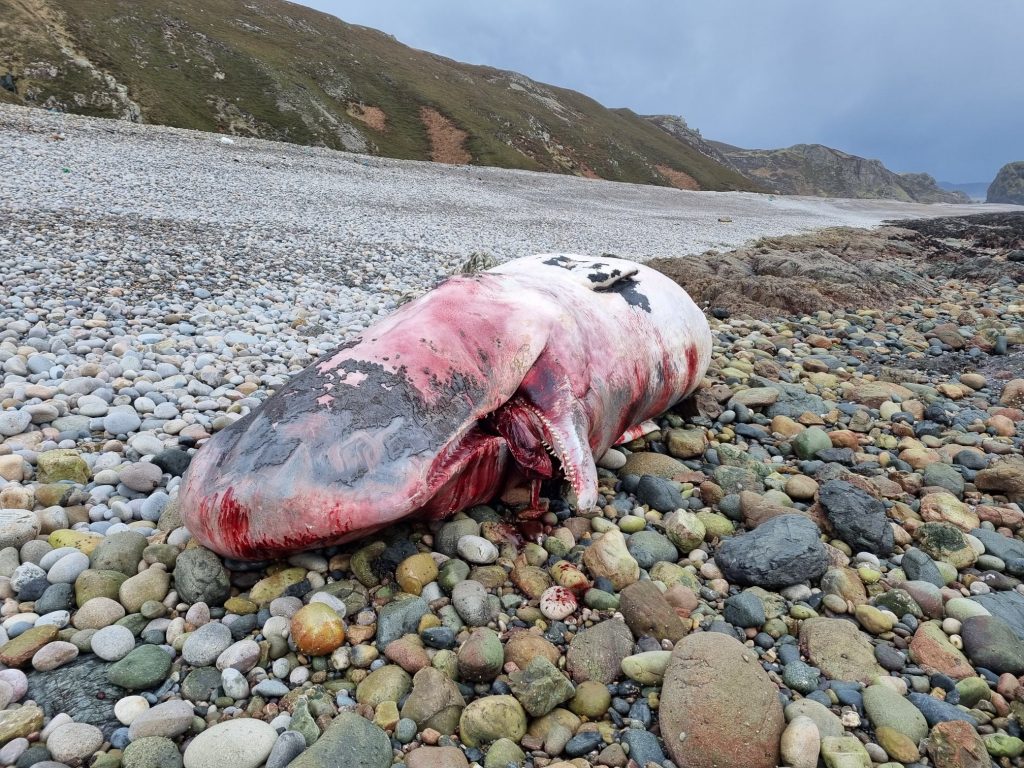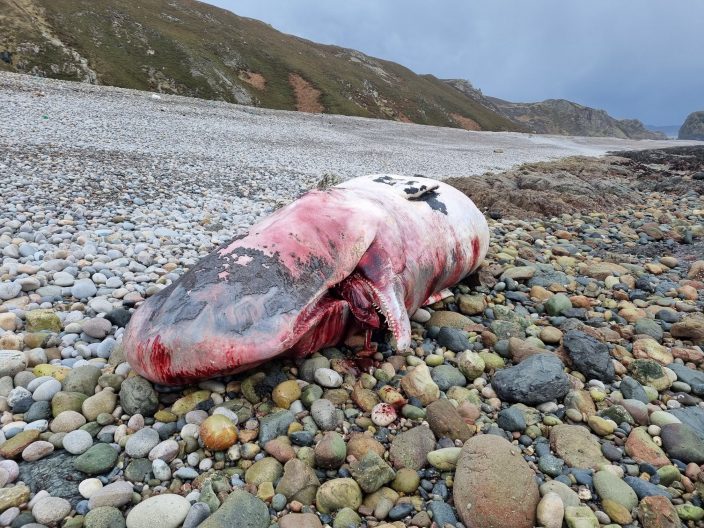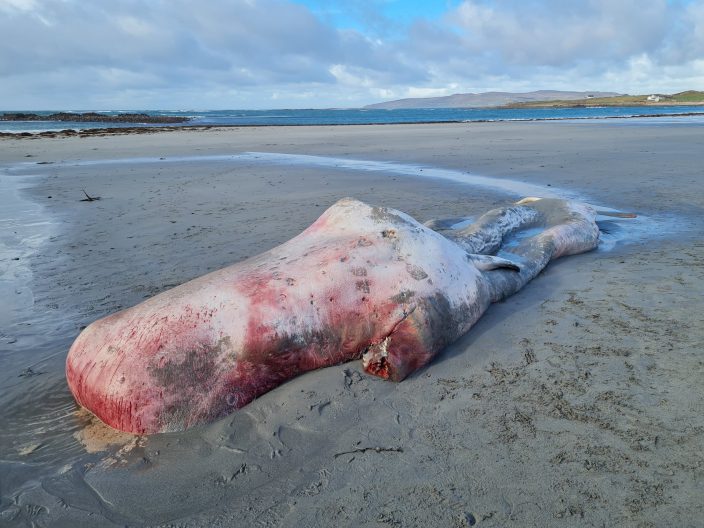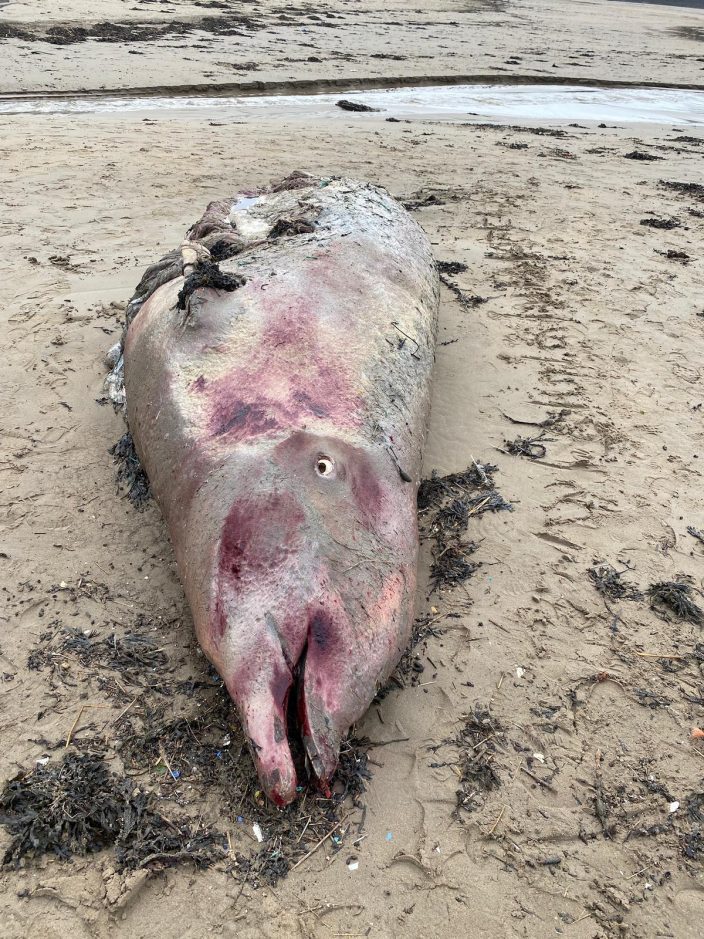The IWDG would like to clarify our opinion on recent whale strandings of deep-diving whale species. Currently the IWDG cannot call this a UME – an Unusual Mortality Event. It is important to report all stranded cetaceans to the IWDG so we can identify any unusual trends.
Deep-diving species, such as Cuvier’s beaked and sperm whale, and to a lesser extent, long-finned pilot whales, are the most sensitive species, likely to be most affected by this testing. Between the 15th and 21st of February, there have been four deep diving species reported to the IWDG stranded on the Irish coast – two female sperm whales, one female Cuvier’s beaked whale, and one female long-finned pilot whale.
These animals washed up in similar states of decomposition, suggesting they may have died roughly around the same time. However, their advanced state of decomposition hindered any hope of investigating causes of death from a post mortem examination.
After reviewing the IWDG Cetacean Stranding database, we can confirm that these species are regularly recorded stranded on the Irish coast each year. IWDG record on average each year three sperm whales, four Cuvier’s and 16 long-finned pilot whales. So currently the IWDG cannot call this a UME – an Unusual Mortality Event.
Before any claims can be made calling this a UME or linking these current deaths to the military exercise to be carried outside the EEZ off the southwest coast of Ireland, additional evidence is needed – we must wait to see if any further deep diving species wash up over the next few weeks as these numbers themselves currently are not out of the ordinary. Two female sperm whales washed up at the same time is unexpected as most stranded sperm whales in Ireland are mature males. To date only 13% of those stranded sperm whales for which gender was recorded (n=54) were female.
If any deep-diving animals wash up in reasonable condition, the IWDG will carry out a post mortem if conditions allow but establishing the cause of death for these large animals is not easy.
It is especially important at this time to report all stranded cetaceans to IWDG as soon as possible. The IWDG stranding scheme is one of the longest running stranding schemes in Europe, and it is because of this comprehensive database that we are able to discern what is considered normal and abnormal with regards to the stranding events.
The IWDG are keeping a close eye on this situation and will provide any updates should they arise. Thank you to the IWDG Stranding Network for their continued vigilance.
Stephanie Levesque
IWDG Strandings Officer




